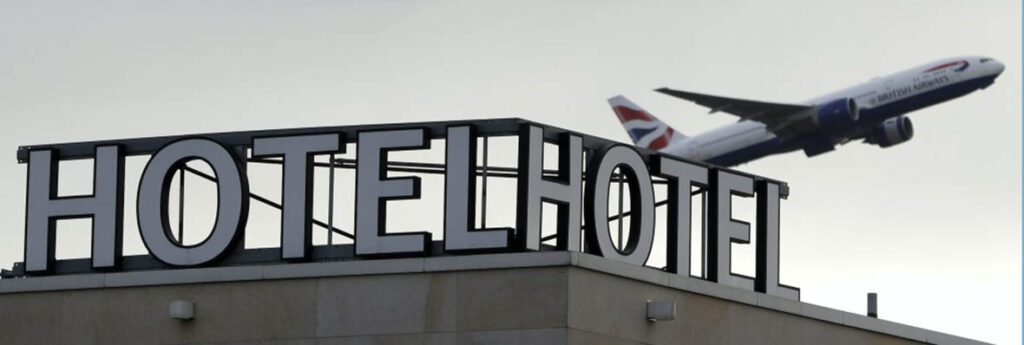Everyone arriving in the UK from countries identified as coronavirus hotspots will have to spend 10 days in hotel quarantine starting Feb. 15 in a bid to stop new virus variants reaching the country, the government announced Friday.
Under the plan, British citizens and residents returning from over 30 previously identified high-risk countries (mainly South America, Africa, and Portugal) will have to quarantine in approved hotels near airports and seaports, patrolled by security guards, and will be billed for their stay.
International travel is already restricted under current restrictions to curb the spread of the virus, with Britons barred from taking foreign holidays. People arriving from overseas are already required to show a negative coronavirus test and self-isolate in Britain, but enforcement is patchy.
The UK says it has sought advice from Australia and New Zealand, where quarantine hotels have been used to contain COVID-19.
Canada announced similar measures, albeit for all arrivals, on Jan. 29.
Despite the move, British authorities are facing criticism for delays in implementing the policy, which was first announced in late January and for “chaotic” rules that are missing key details, such as how to book a room in a quarantine hotel, and the possibility of travellers having to take up to four tests at their own expense. More government details are expected this week, which is less than a week from implementation.
The main opposition Labour Party said it was “beyond comprehension” that the policy was only being introduced 50 days after a new, more transmissible strain of the virus from South Africa was first identified, while Labour borders spokesman Nick Thomas-Symonds said the government was doing “too little, too late.”
Meher Nawab, chief executive of the London Hotel Group, questioned whether there was enough time to set the system up safely.
“To set all the processes up you need virologists to come and visit the property, you need to set up hygiene protocols – that can’t all be done overnight,” he told the BBC. “The ventilation system has to be looked at very closely. I’m not sure what (the government) has set out can be done in this time.”
Some hotel chains said they were in talks with the government about taking part, but Paul Charles, chief executive of travel consultancy The PC Agency, said others were concerned about their brand reputation being “tarnished” if they became associated with pandemic quarantines.
Britain has experienced Europe’s worst coronavirus outbreak with more than 110,000 confirmed deaths. It also has one of the world’s fastest-moving vaccination campaigns. So far almost 10.5 million people, 20% of all adults, have received the first of two doses of a vaccine.

